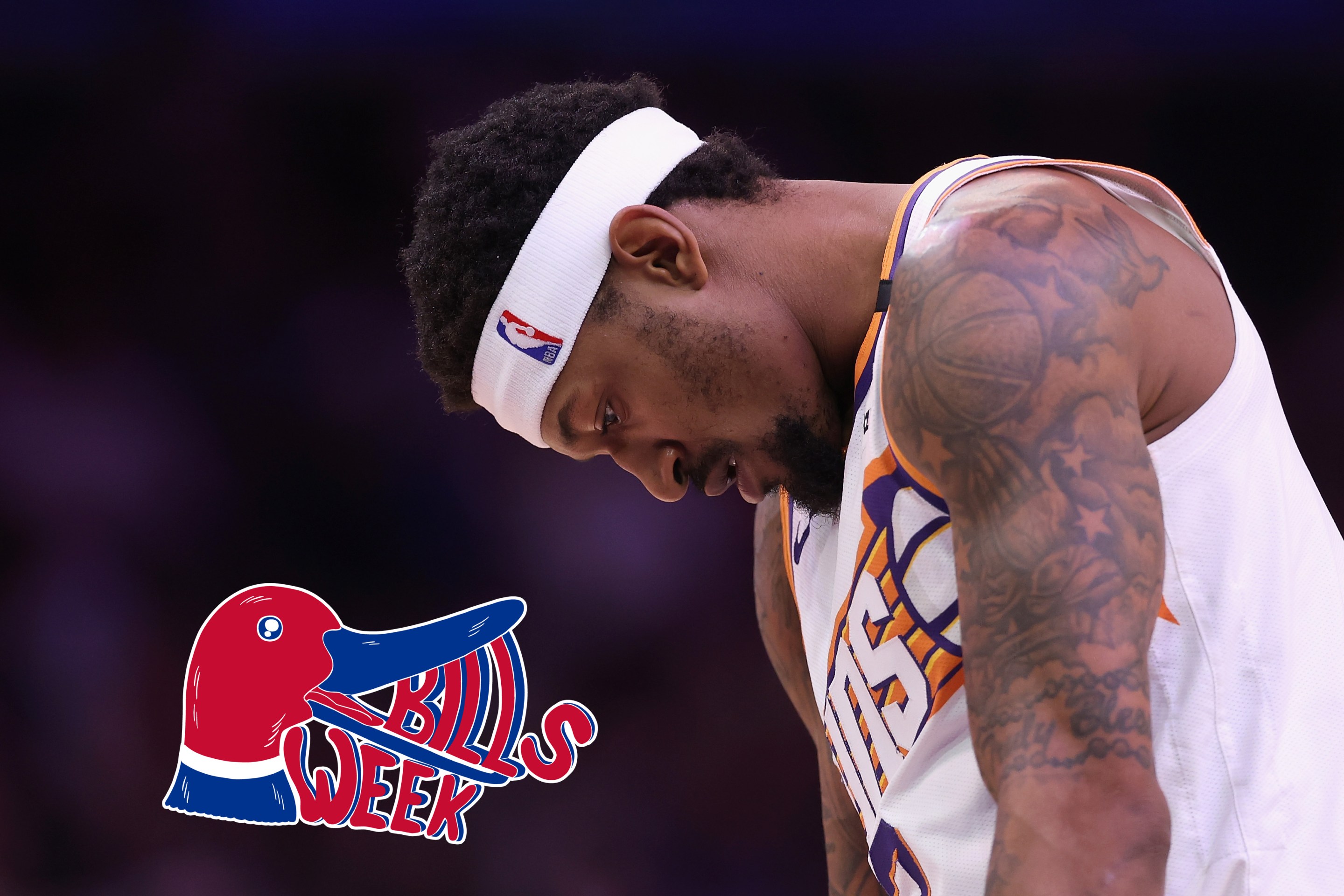On Wednesday, the Phoenix Suns agreed to a buyout of Bradley Beal's contract, ending a putrid era that amounted to very little. The team traded for Beal in the summer of 2023 to play alongside Kevin Durant, who was traded to Houston in June, and Devin Booker, the last one standing, having just signed an extension in Phoenix. Their skillsets were redundant, their chemistry depressing, and, despite their three salaries adding up to 107 percent of the salary cap in the 2024-25 season, they never won a single playoff game together.
Beal had reportedly been unhappy in Phoenix for a long time; since-fired coach Mike Budenholzer even yanked the guard out of the starting lineup for six weeks. But Beal's contract had a no-trade clause, narrowing the Suns' options for offloading him. The solution: a gigantic buyout. Per The Athletic, Beal was owed $110.8 million over the remaining two years of his contract. He agreed to forgo $13.8 million of it, and will see the remaining $97 million stretched over the next five seasons. Beal's agent Mark Bartelstein told ESPN that he took "intense conversations" to pull off the buyout; it's worth remembering that he was negotiating against his son Josh, who is the CEO of the Suns.
Beal's enormous stretch buyout is the second of this offseason. Having $19.4 million of dead money on the books every year until 2031 will kneecap Phoenix's roster construction, but it's a move made under duress. While the Milwaukee Bucks stretched the injured Damian Lillard, the move at least allowed them to sign spacing big Myles Turner, giving Giannis Antetokounmpo a crucial complementary piece. The Bucks didn't want their superstar to walk, and they were willing to muck up their books in order to uphold the delicate fiction that Antetokounmpo could contend for a title there. With the Suns, there's not even a fun story to tell—it's a purely financial move. They don't have a near-term future to speak of, and they understandably did not want to be both awful and expensive next season.
The penalties of going over the second apron under the current CBA are just too severe, so NBA teams are desperate to get out from under shitty contracts and willing to suffer in a different way. With this buyout, the Suns saved $175 million in luxury tax next season alone. By dipping back under the first and second aprons, they can dodge a number of penalties, like restrictions on how they structure trades, and having their first-round draft pick shunted all the way to the end of the round. That keeps them nice and flexible so that they can continue paying Booker $72.5 million a year, to no particular end. This is the pain of the buyout: A team takes its existing bill and stretches it out into medium-term damage, in order to avoid even more catastrophic bills in the short term. That team isn't much of anything, and can't be for quite some time. But at least the bills are lower.






